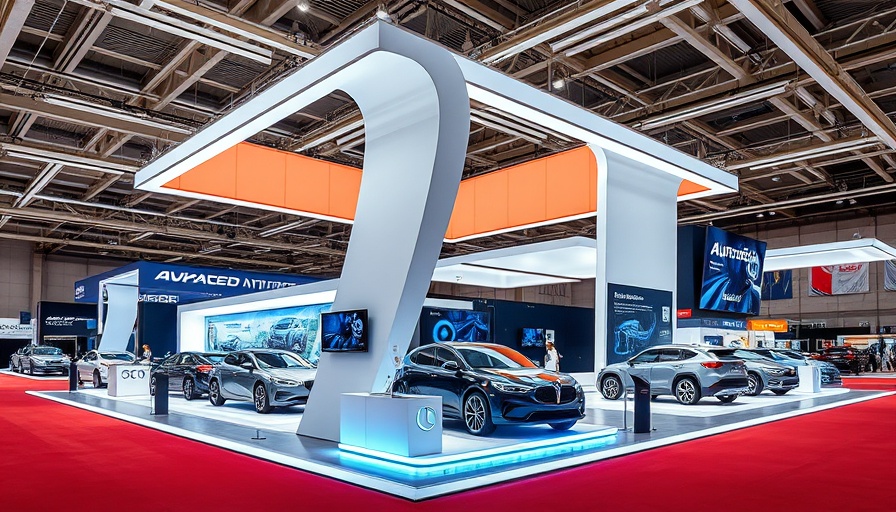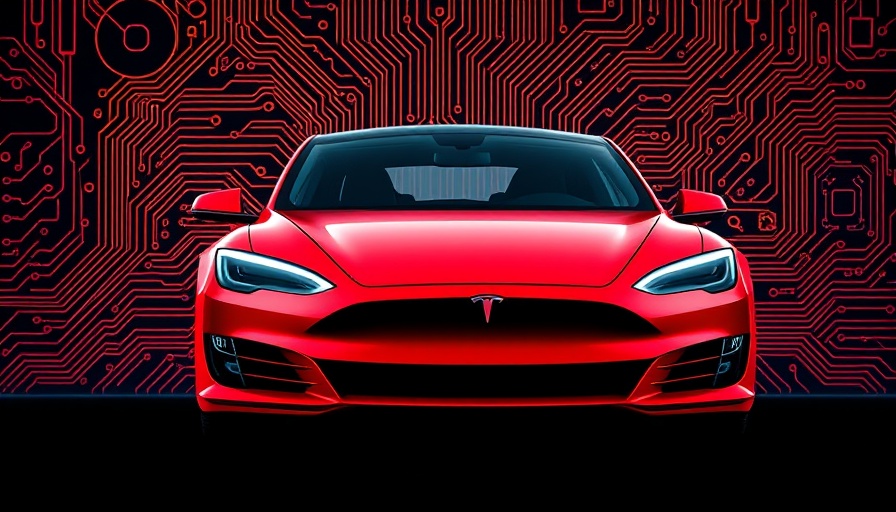
Intel Takes a Major Turnaway From Automotive Innovations
In a surprising move that has sent ripples through the automotive tech industry, Intel has announced that it is discontinuing its automotive architecture business and laying off a significant portion of its staff. This decision follows a broader restructuring effort intended to refocus the company on its core client and data center offerings. Intel’s spokesperson stated on Tuesday, the day of the announcement, that while the automotive division had been pivotal in the realms of automated vehicle technology, it no longer aligned with the company’s strategic goals.
What This Shift Signals for Automotive Technology
As the automotive landscape evolves with a strong focus on electric vehicles (EVs) and smart technologies, Intel's decision puts a spotlight on the challenges and competitive pressures within this sector. The automotive industry is currently experiencing a technological renaissance, where electric powertrains and software-defined vehicles define the future. Just last year, Intel showcased its innovations at the CES 2025, which centered on an AI-enhanced system-on-chip (SoC) aimed at enhancing vehicle performance. However, declining sales and changing leadership within the company hinted at instability.
The Ripple Effects of Intel’s Layoffs
The impact of these layoffs could extend beyond Intel itself, affecting various partnerships, particularly with automakers who were exploring collaboration on advanced driver-assistance and automated driving systems. It's crucial for automotive consumers to pay attention to these changes, as they might influence the availability and development of innovative technologies in vehicles. While Intel once aimed to be a leader in the software-defined vehicle space, this retreat may open up opportunities for other tech companies stepping into the automotive sector.
Future Trends in the Automotive Sector after Intel's Shift
This unexpected shift raises questions about the future of automotive technology. The automotive industry has been trending toward integrating sophisticated software and advanced AI solutions into vehicles. As companies pivot towards electric and hybrid powertrains, understanding the dynamics of these trends becomes essential. Alternative technology firms may see this as a prime opportunity to fill the void left by Intel, potentially accelerating advancements in EMV technology and AI-driven vehicle systems.
Consumer Implications of the Changing Automotive Landscape
The decline of Intel’s automotive business underscores the importance of staying informed about industry developments. For automotive consumers, this might mean reassessing the vehicles they choose to invest in or the technologies they prioritize. New players are emerging, and with them, fresh innovations could revitalize the market. Embracing change means considering how shifting technology trends can impact daily driving experiences and long-term automotive investments.
As this situation unfolds, remain alert to shifts within the tech and automotive sectors, as understanding these changes can truly enhance your automotive journey. Prepare to embrace new interests in the evolving landscape of automotive technology.
 Add Row
Add Row  Add
Add 




Write A Comment